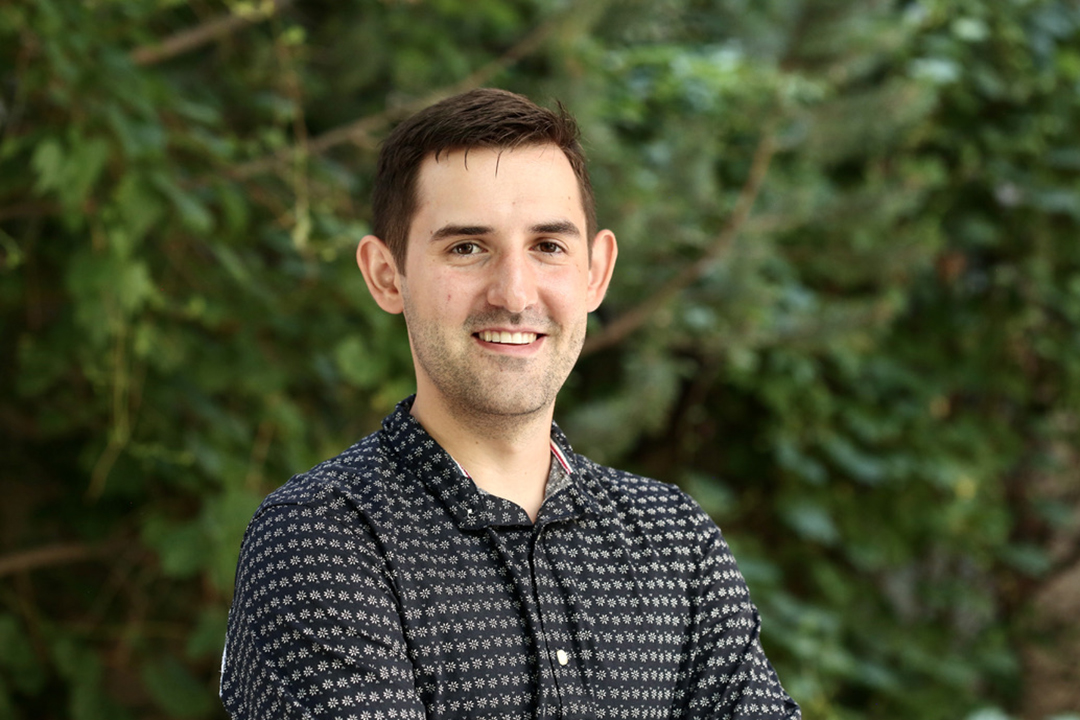
Four new USask Vanier Scholars demonstrate excellence in research and leadership
Four University of Saskatchewan (USask) doctoral students — including a Western College of Veterinary Medicine-based graduate student — have been named 2022 Vanier Scholars.
By USask CommunicationsCody Koloski is a PhD student whose research work is supervised by Dr. Maarten Voordouw, an assistant professor in the WCVM's Department of Veterinary Microbiology. The other three recipients are Gilbert Adum, Lindsey Boechler and Pezhman Zolfaghari Didani.
The prestigious annual Vanier Canada Graduate Scholarships recognize academic excellence, research potential, and leadership skills in scholarly work. Each student will be awarded a scholarship valued at $150,000 over three years as they conduct their doctoral research programs.
“We are grateful for the support of the Vanier Canada Graduate Scholarship and that these impressive scholars have chosen USask for their graduate training,” said Vice-President Research Baljit Singh. “We know their emergence as leaders and high achievement in their chosen scholarly fields will help further establish our institution as a global leader in discovery the world needs.”
Research projects supported by the scholarship will investigate numerous social and scientific challenges that society faces, with focuses on education, health, medicine, and environmental sciences.
Koloski's research work focuses on gaining a better understanding of Lyme disease. The bacteria that causes Lyme disease, Borrelia burgdorferi, is one of the most important pathogens in the Northern Hemisphere. It's transmitted to humans through interactions with live vertebrate hosts such as the blacklegged tick, rodents, and birds.
Once infected with Borrelia burgdorferi, humans develop Lyme disease, which is characterized by signs such as a red rash on the skin, fever, headache, and fatigue. If left untreated, the infection can spread to the heart and nervous system and cause long-lasting damage.
Koloski will conduct a research project that aims to understand how vertebrate hosts are able to become infected with more than one strain of Borrelia burgdorferi at a time.
“In nature, vertebrate hosts are frequently infected with more than one strain, a phenomenon called co-infection,” said Koloski. “In co-infected hosts, strains have the ability to interact with each other, which can influence their success in nature. A common scenario is when a strain encounters a host that is already infected with another strain.”
But the process of a second strain establishing itself in a previously infected body and causing a co-infection is not well understood, Koloski added.
Koloski will conduct a research program that investigates if the first strain to cause infection forms a sort of barrier against a secondary infection. The team will compare how mice with normal immune systems versus mice with compromised immune systems with differing levels of the Borrelia burgdorferi bacteria, affect the ability for co-infection with a second strain.
“The research will give us a better understanding of how pathogen strain diversity is maintained in nature,” said Koloski.
Visit news.usask.ca for more details about all four of the Vanier Scholars' research projects.
